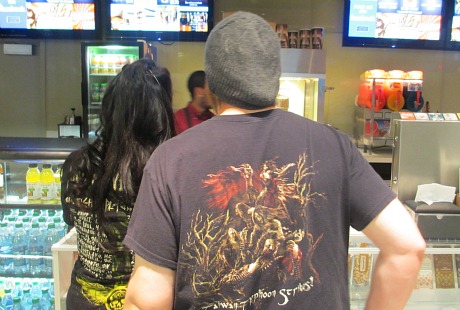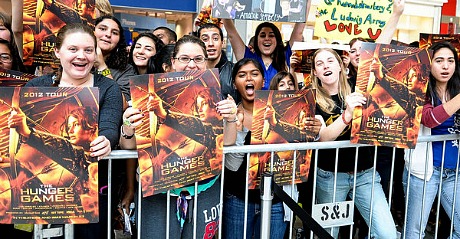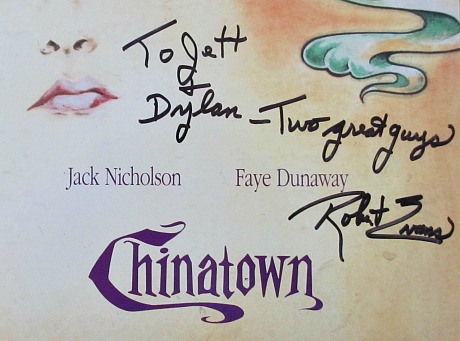I’ve always liked the films of Jay and Mark Duplass (Cyrus, Baghead, Puffy Chair) and that introspective thread they always weave into their material. But their latest, Jeff, Who Lives At Home, which I paid to see last night, is about a gentle-mannered, perceptive, lethargic stoner (Jason Segel) who’s the size of a Tibetan Yeti, and his delusional douchebag loser of an older brother (Ed Helms) who’s much smaller. And it’s really hard to care about the fate of guys who are this lost and pathetic.
I’ve always attributed the line “life is hard but it’s even harder when you’re stupid” to The Friends of Eddie Coyle, which is to say author George V. Higgins. But apparently this was John Wayne’s line first. But you know what’s hardest of all? Watching movies about guys who are stupid. Or, put another way, movies which aren’t interested in using stupidity to deliver broad comedic goofs, but as a way to get into the curiously absurd but wise way of things in a bright-guy vein.
That’s the Duplass way, their signature, I get that…but not this time.
Segel’s character, Jeff, is roused from his ripped basement apartment stupor when he (a) is watching some TV face named Kevin push a product that will get you going and help you lose weight or whatever, and then (b) gets a phone call from a pissed-off guy asking for Kevin. Jeff is persuaded henceforth that the name Kevin holds some cosmic significance for him. So he’s on a bus to take care of some household-repair thing for his mom (Susan Sarandon) and decides that some black kid on the bus named Kevin is part of this chain of fate. And then he gets ripped off by Kevin’s friends while having a few puffs, etc.
How moronic do you have to be to even begin to think and behave like this? I’ve known plenty of stoners in my time and none of them have even approached the outer region of this level of deranged behavior. My schizophrenic sister would make these kind of associations now and then when she didn’t take her medication, but she never acted on them like Jeff. She’d just mutter about stuff while sitting at home and listening to music and watching MTV.
The only people who are affected, say, by the shape of a mound of whipped cream on a cup of hot chocolate and then begin to study the shapes of clouds in the sky, convinced that when they find the cloud that has the exact same shape as the whipped cream that their life will somehow take on a magical quality…this is not what stoned do-nothings are about. This is what people who’ve crossed the River Jordan into the Realm of Cuckooville are about. There are no stoners, in short, who are as off-the-reservation stupid as Segel’s Jeff. So for me, the movie went right out the window during the first ten minutes because I can’t invest in the plight of morons who lack the basic-intelligence instincts of dogs and cats.
That said, I liked Sarandon’s character in this thing; ditto Judy Greer‘s wife-of-Ed-Helms. I would have been entirely content to watch a movie about these two, and the hell with the guys. Really.






